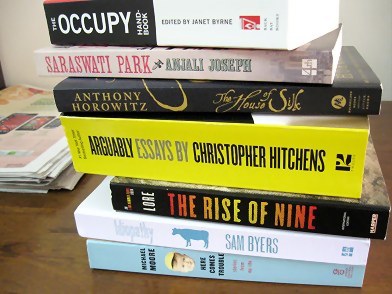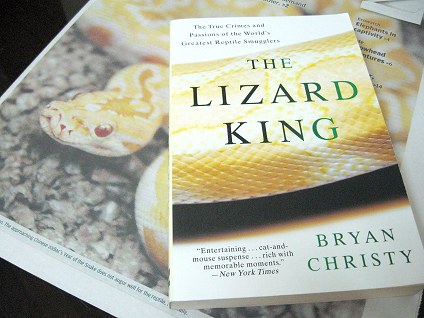Around 2005 or 2006, Brian Gomez quit his job to travel and write Devil's Place, a fast-paced, violent, politically incorrect and expletive-laden novel - criteria that will make the Home Ministry's reading list if it wasn't labelled as fiction.

Despite the main cast's international make-up, Devil's Place is very Malaysian, right down to the jalan cerita that's like the North-South Highway during festive seasons. Observant readers will spot facets of our society and culture as the pages turn, many of which are unsavoury. It's not 'Malaysia, Truly Asia', but it's damn funny.
Brian was kind enough to answer some questions regarding his debut novel for Off The Edge, back in 2009:
ADOI magazine said you were previously Creative Director for Friends Advertising. What made you quit your job and go off to travel and write?
While working on concepts and ideas for the many ad campaigns I'd done over the years, inevitably some random idea would pop into my head and I'd think This would be a good premise for a book or this would make a good movie or maybe I'd stumble upon a phrase that I thought would sound good in song. And eventually I had to quit my job just to see if something could come out of these ideas. I wasn't 100% sure I was going to write a novel at the time. But in the end the premise and promise of Devil's Place interested me the most.
May I assume that your blog (thefloatingturd.blogspot.com) reflects your political leanings? But surely you didn't write the book to air those views?
Not everything I blog about reflects my views. My blog posts are written in pretty much the manner the novel was written, that is to say I start out with a premise and then see where the next paragraph takes me. Sometimes it takes me to places that have nothing to do with what I believe in. But more often than not, I think, they end up more or less a reflection of my values. If by reading my blog, you surmise that politically I'm more left than right, you'd probably be correct.

It was amazing to recognise all those little Malaysian idiosyncrasies in the novel, but it doesn't exactly paint a pretty picture. What are your feelings about the 'Malaysia' in Devil's Place? How close is it to the one we are living in?
I think the Malaysia in Devil's Place is probably slightly less absurd than the real Malaysia. In any other country, Devil's Place would be considered satire but after everything that's happened in the country the last couple of years – The Lingam Case, Altantuya, ISA Protection etc – I fear a story about terrorists, a prostitute, politicians, corrupt cops and stuff might actually bore people. But I love this country. I really do. What writer wouldn't? It's the gift that keeps on giving, isn't it? I think I actually love the things I hate more than I love the things I love.
Any word from the Home Ministry regarding your book?
The good thing about book-publishing in this country is that you don't have to be licensed by the Home Ministry. But magazine publishers do, don't they? There could be a Home Ministry official reading this at this very moment, couldn't there? To any Home Ministry officials who may be reading this right now, I would just like to say that among all the ministries the Home Ministry is my favourite and that, in my opinion, it is perfectly acceptable to detain people without trial for the purposes of their own protection. The Home Ministry rocks! But not in a bad way like Avril Lavigne or anything. The Home Ministry rocks in a good, clean, Eastern-values-filled way! Like Mawi!
Are you really coming up with a sequel to Devil's Place? Mind telling us a little bit about it?
It's a sequel-but-not-quite. Some of the minor characters from Devil's Place will feature in the new book I think, but it will be a completely different story. So far, I've got the premise. I'm itching to start but haven't found the time. Hopefully, it'll be out by the end of the year.
You mentioned that you're currently working freelance. Are you getting by, and is there anything readers of Off The Edge can do to help (besides buying the book)?
I get by but the millions I expected from sales of the book have strangely not materialized. Off The Edge readers who wish to remedy this grave injustice can send me suitcases full of cash of which I promise to donate at least 10% to The Home Ministry.
Brian Gomez's Devil's Place was originally published by Idle Minds in 2008. Its re-launch as part of the Fixi Novo imprint is happening at Kinokuniya, KLCC on 30 March, from 8pm to 9pm. Not sure if there will be a sequel.
Happening on the same day and around the same time is MerdeKahKah Comedy + Improv at Brian's Place aka Merdekarya, 1st Floor, 352, Jalan 5/57, Petaling Garden, Section 5, Petaling Jaya. Attendance is free, but please leave something in the tip jar.
So, where will you be?
Categories:
Book Blab

















